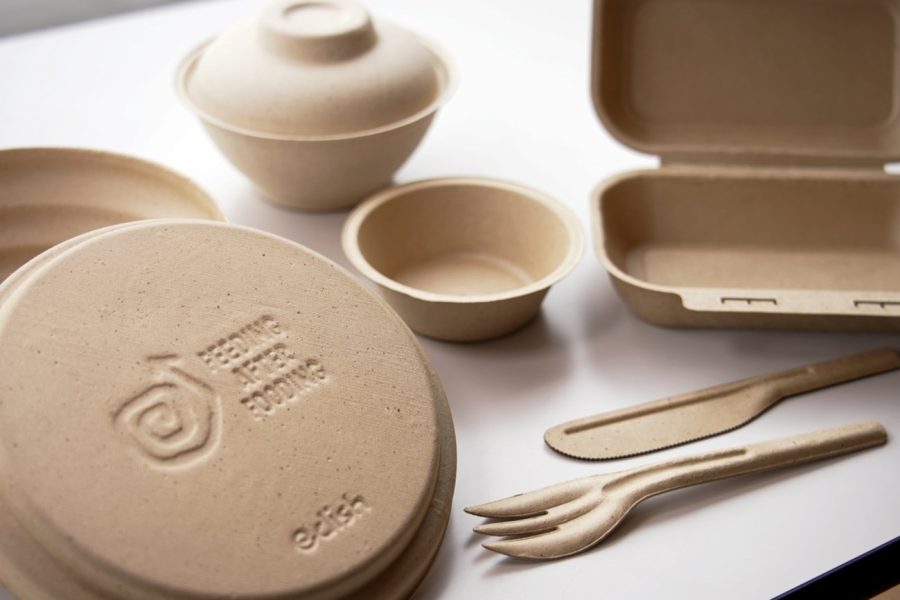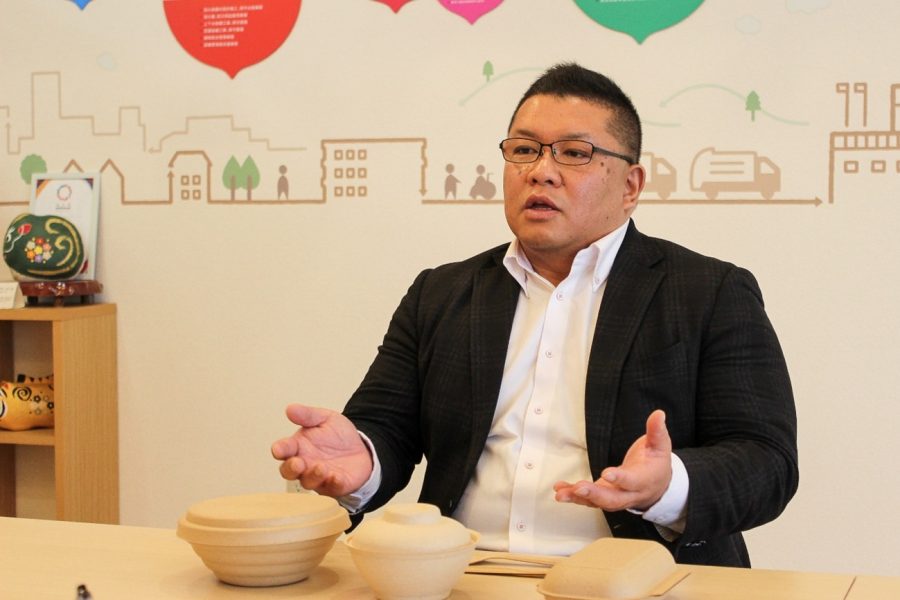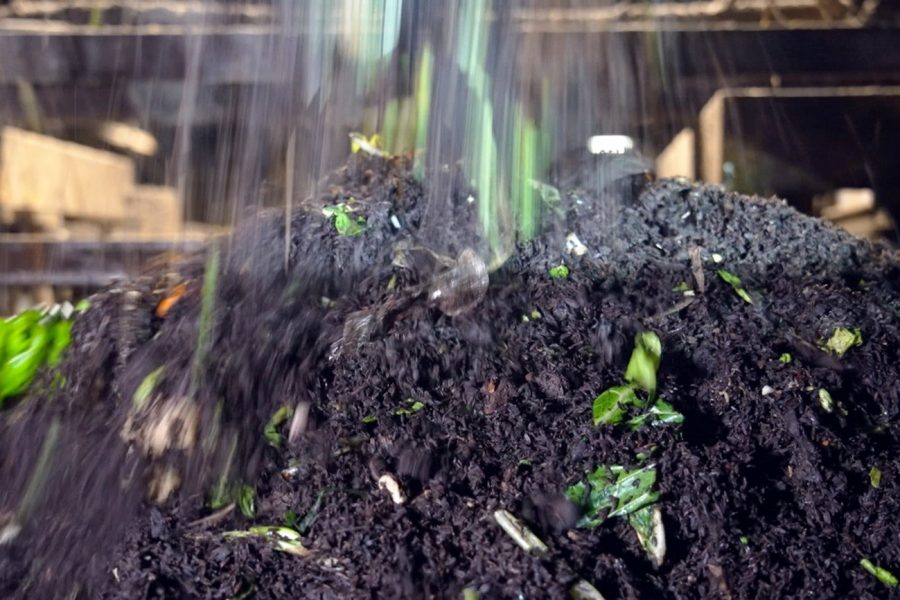
The waste from food products, such as wheat bran, cacao husks, and fruit rinds, is reborn as plateware with a unique technology, and then used as a fertilizer to become nutrients for animals and plants. Such recyclable plateware, which can be reborn many times, will be used at the venue of Expo 2025 Osaka, Kansai, Japan. We will focus on the story of successful development of a new product, in which an employee of the leading trading company “Marubeni” came up with an idea and that idea culminated in the passion for the reduction of disposable plastics.
In the spring of 2019, Mr. Keita Yanase, the chief of the package business section, visited the audio equipment component maker “Plus Industry Co., Ltd.” (Shizuoka City), which is a business partner, and encountered an interesting technology. With the unique technology called “pulp mold,” which can mold pulp (wood fibers), which is a raw material for paper, into any shape, it is possible to blend and process materials other than paper. A milling company, which is one of their clients, had just consulted with Marubeni about how to use a large amount of wheat bran.
He wondered whether they could produce plateware from pulp and wheat bran and use them as a replacement for plastic containers. While the problem of marine plastics was becoming more serious, they were discussing materials that are not disposable. He had an inkling that two concerns would be solved at once and they could obtain a new seed of business.
Upon returning to the company, Yanase started fleshing out his idea of recyclable plateware during his spare time while engaging in routine work. He crystallized his idea, which proposes a system in which plateware and leftover meals are collected, pulverized, and fermented to make them into compost. This system would contribute to the reduction of food waste and fertilize food ingredients, to recycle lives themselves.
Next, he decided to submit his idea to “Business Plan Contest,” which started in the previous year and allows any employees to participate, in order to obtain a budget for commercialization. He immediately requested Plus Industry to cooperate in production. Finished products are simple, yet fashionable while harnessing the colors and patterns of materials. The plateware was named “edish,” which was derived from the initials of “ecological,” “ethical,” and “economical,” which helped him come up with the above idea.
While there were 114 applications from 12 countries, Yanase’s plan passed two screenings, and became one of 9 plans to undergo the final screening. Then, he was about to give a final presentation on January 16, 2020. About 400 employees got seated in an event hall in Nihonbashi, Tokyo. While holding a prototype, Yanase spoke passionately about his refined plan. Judges, who were composed of external experts, and employees voted, and his plan was chosen as one of three plans that could be commercialized, ensuring funds for test marketing and R&D. The judges praised his idea, saying, “His plan could join the global trend, and has potential.”
He said, “I’ve never felt this level of a sense of accomplishment in my life.” A door to his dream of making his own idea into business from scratch and then tackling social issues, which he has held since he joined the company, was opened finally in the 15th year of employment.
(Continuing into Vol. 2)


Share this article


